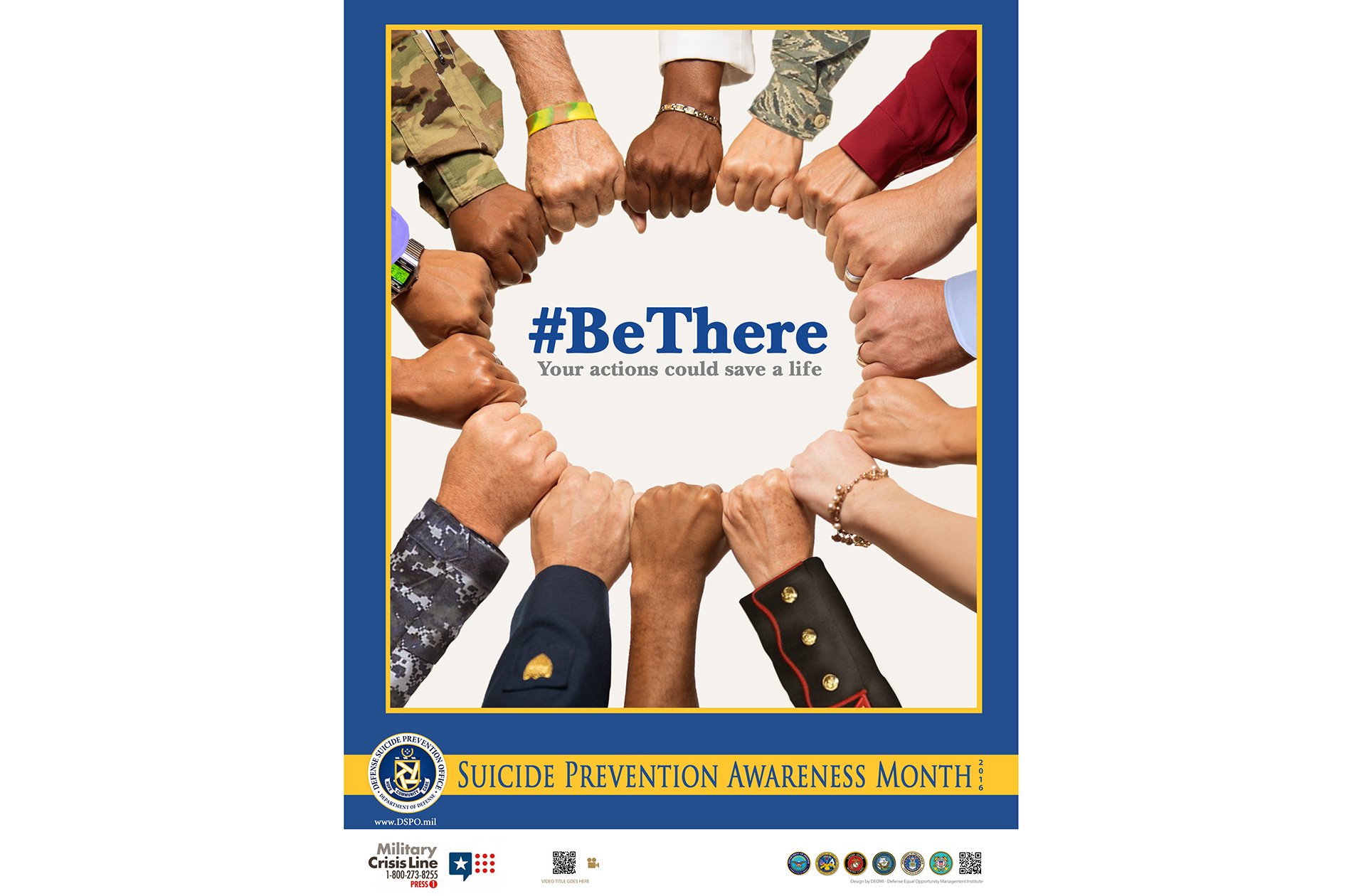By Terri Moon Cronk
DoD News, Defense Media Activity
Preventing suicide requires the commitment of all in the Defense Department, Marine Corps Gen. Joe Dunford, chairman of the Joint Chiefs of Staff, said in a videotaped message at the Sept. 7 Suicide Prevention Month kickoff at the Pentagon.

Marine Corps Lt. Gen. Robert R. Ruark, military deputy to the acting Secretary of Defense for personnel and readiness, echoed the chairman in his keynote remarks, and said this year’s theme, “Be There,” serves to raise awareness among military and civilian personnel, veterans, and their families and friends.
“The bottom line is that we care about our soldiers, sailors, airmen, Marines and Coast Guardsmen, and that [caring] has to continue after their service ends,” Ruark said.
Personal Experience
The general recounted three stories of those who took or tried to take their lives when he commanded 4,000 troops and a base comprising 8,000 people in Iraq in 2008. A lance corporal, he said, took his life with a week left in his deployment.
“It just floored me,” Ruark said. “And what I found out was we were doing all the right things,” to prevent suicide.
A memorial service was conducted for the departed Marine, Ruark recalled.
“I remember the outpouring of grief … for me, it was a significant learning point,” he said.
The second suicide Ruark experienced was a colonel — an attorney who was deployed to help with the Rule of Law. Ruark said he brought in experts comprising a combat stress team and psychologists to help personnel deal with grief.
“We had pilots, tankers, logisticians … everybody showed up because it bothered them,” he said.
When Ruark’s phone rang late one night in 2009, a young Marine corporal was in the surgical unit after attempting suicide with a self-inflicted gunshot to the head. The surgeon said the young Marine’s vital signs were stable. “I remember thinking, ‘He’s going to have to live with this,’” Ruark recounted.
The general recalled that he met the young corporal two years later at Camp Pendleton, California. Ruark recalled that the scarfaced young man told him, “Sir, I wish I knew then what I know now.”
Imparting Knowledge to Save Lives
“If we can impart this knowledge and prevent [suicide] and get people to work beyond the immediacy of the moment and how things may be, they can go on to do well,” the general said.
The services have good strategies to fight suicide, Ruark said. “There is so much to reducing the number of suicides,” he said. ‘It’s a long-lasting commitment. You’ve got to have a strategy and campaign, and we’ve done that for eight years. Beyond basic leadership, it’s dealing with the newer challenges our young people and veterans [deal with].”
Ruark said many veterans want to reconnect with their battle buddies and other veterans, and often do so at reunions, athletic events and clubs. “It’s going on throughout the United States, and the public supports them,” he said.
Such regular connections help with such issues as suicide, the general said. “It’s one tool we can use,” he said.
“It’s tied to science,” said Keita Franklin, the director of the Defense Suicide Prevention Office. “Social support is a key indicator for saving lives by being successful in suicide prevention. So reunions are a perfect forum for social support where they can extend well beyond their service time.”
Social Media
Franklin warned against the dangers of social media that must be taken seriously. A DoD social media study found service members are talking about their risks online in open domains, she said.
“I don’t want folks to ignore that,” Franklin said. “Know that it’s not attention-seeking. Despite the fact they have 300 friends on social media, be that friend and offer yourself the crisis line number — because ignoring those posts is dangerous.”
“There is a way to use the immediacy of social media to your advantage,” Ruark said. “A sergeant major once told me you need to befriend your troops on Facebook if you really want to see what’s going on.”
This year’s “Be There” theme will resonate with troops because it aligns with the military’s values of camaraderie, honor, courage and commitment, Ruark said.
“‘Be There’ will resonate because it’s a way to hit home that [suicide] is preventable,” the general said. “We need to address every commander so he makes resilience part of his or her drumbeat when talking to units. And we can help people cope with the immediacy of certain issues and how severe they may be by thinking about the broader picture.”

